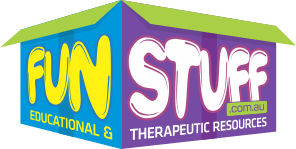How Can I Help My Child with Speech Delay?
If you have a child who is struggling to communicate, you may be wondering what you can do to help. A speech delay can be very frustrating for both the child and the parents, and it can be difficult to know where to turn for help.
In the points below, we'll discuss some of the basics about speech delays and how you can help your child overcome this condition with the help of toys for speech development. We'll also outline what kinds of toys encourage language, and choosing the right speech therapy toys for your child’s unique needs.
What is a speech delay and what are the signs?
A speech delay is a lag in communication skills. It’s not unusual for children to be delayed in speech development. In fact, it's estimated that around five per cent of children aged four to five years old have difficulty with speech sound production and one per cent have significant difficulties.
There are different types of speech delays, but the most common is expressive language delay, which is when a child can’t find the words to express what they want to say. Signs of expressive language delay include:
- Not using gestures, such as pointing or waving, by 12 months
- Not saying single words by 16 months
- Not putting two words together by 24 months
- Having an unusual way of speaking, such as reverse pronouns (“you” instead of “I”)
If you’re worried about your child’s speech development, the best thing to do is talk to your GP or paediatrician – they will be able to assess your child and refer you to a speech pathologist if necessary.
How can I help my child communicate better with me and others around them?
If you think your child may have a speech delay, there are a few things you can do to help them communicate better.
First, make sure that you are providing them with opportunities to practise their communication skills - this means talking with them often, reading books together, and playing games that encourage language development. You can also try using toys that are designed to encourage speech and language development. At Fun Stuff, we have a range of speech therapy toys and games available that are specifically designed to help with speech development.
For example, the Who Are You?Thumball has 32 prompts for children to get acquainted. It stimulates social conversation and helps your child develop interpersonal communication skills. Showing interest in others by asking questions and actively listening to responses lays a foundation for friendships and improved relationships.
Meanwhile, the Webber® Articulation Cards help children practise sounds like SH, CH, TH, F, V, K, and G through a variety of activities to reinforce articulation, language development, listening, and memory skills.
In addition to providing opportunities for practice, you can also help your child by modelling good communication skills. This means using clear and concise speech when talking with them, and encouraging them to do the same. You can also help them by breaking down tasks into smaller steps and using visual aids to help them understand what you are asking of them.
Contact Fun Stuff
Explore our carefully curated selection of speech therapy toys online and if you have any questions, please don’t hesitate to contact us.
Recent Posts
-
What Are Sensory Toys and Why Are They Important?
Children learn more than watching or listening. They learn through engaging in movement, touching, f …12th Jan 2026 -
Boost Speech Confidence: The Essential Guide to Choosing and Using Premium Articulation Cards
Every parent, educator, and speech-language pathologist (SLP) understands the transformative power o …7th Nov 2025 -
Beyond the Couch: Transformative Counselling & Therapy Resources for Australian Families and Professionals
Are you an Australian parent, educator, or therapist seeking engaging, evidence-based tools to suppo …10th Oct 2025




